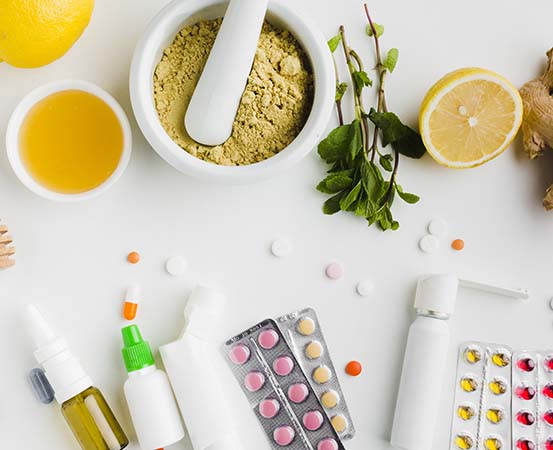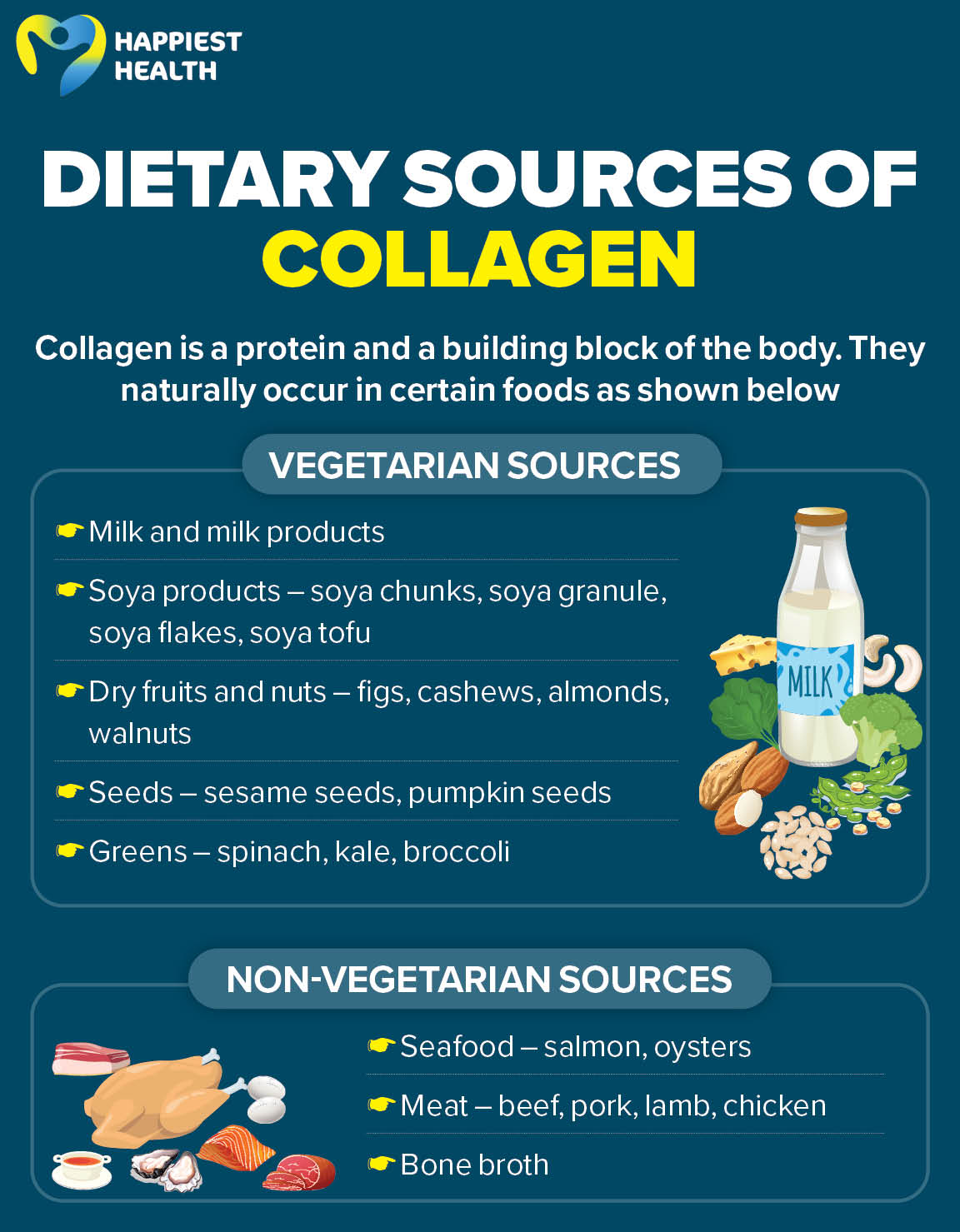
Supplements, despite the debate on whether they are good or bad, are pretty much part of the popular dietary culture. Their need-based intake is prescribed, or rather encouraged by experts. Studies have revealed that overconsumption of certain supplements can have negative impacts on the human body. However, some supplements are vital to keep the body healthy and a boon for those who lack the essential components required for growth, maintenance and functioning of the body. Collagen supplements, for instance, have many takers.
Collagen supplements are taken to enhance musculoskeletal, skin and hair health. They are harmless too, experts say.
“It is not harmful because they are all made from plant extracts and animal sources,” says Dr Ananya Puttaraju, an orthopedic surgeon from Bengaluru, India.
What is collagen?
Collagen is a type of protein. There are different forms of collagen found in the human body.
“Commonly found in connective tissue, skin, bones, tendons and cartilage, it is basically a building block of the body,” says Dr Rasika Parab, a clinical nutritionist from Fortis Hospital Mulund, India.
It helps tissues maintain their structural strength and is crucial for many cellular functions, such as tissue regeneration.
“Whatever dead cells we have in the body need to be replaced with fresh ones,” adds Parab. “All you require is collagen to manufacture or synthesise new cells. Collagen plays a significant role in the healing process and also gives you better immunity.”
Natural sources of collagen
The body is unable to produce collagen in the absence of the required components.
“Dietary collagen is provided by food rich in protein,” says Parab. “Every protein source has a different combination of amino acids [the building blocks of all proteins including collagen]. If you have a high-protein diet it promotes the synthesis of collagen in your body.”

Loss of natural collagen
The ageing process has a negative impact on collagen production. The function of fibroblast [a type of cell that facilitates the production of connective tissues] becomes inefficient with ageing, impacting collagen production. A dip in collagen directly affects the musculoskeletal health, commonly seen in the elderly.
“Cartilage is the covering of a bone that makes up the joint,” says Puttaraju. “What makes up the cartilage is collagen. Age-related cartilage wear and tear are known as osteoarthritis [degenerative arthritis]. In some instances, it can happen even after a fracture (post-traumatic arthritis) or an infection. Any loss of cartilage is called arthritis. Doctors recommend collagen supplements [Glucosamine, Proline, and so on] to patients who have arthritis for whatever reason.”
Collagen supplements
Collagen supplements are available in a variety of forms, depending on the intended usage.
“The powder and tablet forms of collagen supplements are available in the market for dietary use, usually prescribed for muscle, bone, and joint pain,” says Parab. “Dermatologists recommend topical collagen supplements, which come in the form of lotions and ointments.”
Consuming collagen supplements has no negative effects, says Parab. However, the best course of action is to determine one’s collagen requirements first.
“It is an individual’s choice to take supplements or not,” says Parab. “We usually avoid providing collagen supplements if a person has a decent protein-rich diet unless they have some musculoskeletal, skin, or hair health concerns. The collagen requirements need to be assessed, and then decide whether the supplement is needed or not.”
Takeaways
- Collagen is a type of protein found in connective tissues, skin, bones, tendons, and cartilage.
- It is essential for numerous cellular processes, including immune response and tissue regeneration. It also helps tissues maintain their structural strength.
- Natural collagen comes from a high-protein diet and is significant for musculoskeletal, skin, and hair health.
- Collagen supplements are harmless. But it is better to understand one’s collagen requirement before taking them.

















